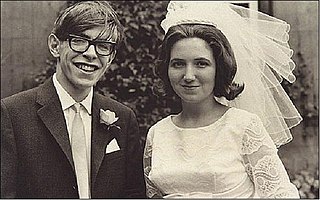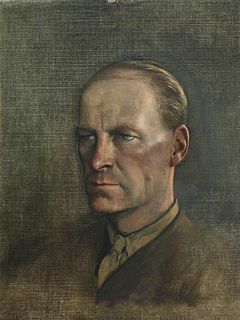A Quote by Samuel Johnson
To have the management of the mind is a great art, and it may be attained in a considerable degree by experience and habitual exercise... Let him take a course of chemistry, or a course of rope-dance, or a course of any thing to which he is inclined at the time. Let him contrive to have as many retreats for his mind as he can, as many things to which it can fly from itself.
Related Quotes
Ruthven surmised that he had hit upon some of the central deceptions which had wrecked him and reduced him and so many of his colleagues to this condition. To surmise was not to conquer, of course; he was as helpless as ever but there was a dim liberation in seeing how he had been lied to, and he felt that at least he could take one thing from the terrible years through which he had come: he was free of self-delusion.
Poverty, we may say, surrounds a man with ready-made barriers, which if they do mournfully gall and hamper, do at least prescribe for him, and force on him, a sort of course and goal; a safe and beaten, though a circuitous, course. A great part of his guidance is secure against fatal error, is withdrawn from his control. The rich, again, has his whole life to guide, without goal or barrier, save of his own choosing, and, tempted, is too likely to guide it ill.
Time, which measures everything in our idea, and is often deficient to our schemes, is to nature endless and as nothing; it cannot limit that by which alone it had existence; and as the natural course of time, which to us seems infinite, cannot be bounded by any operation that may have an end, the progress of things upon this globe, that is, the course of nature, cannot be limited by time, which must proceed in a continual succession.
If we take the freedom to put a friend under our microscope, we thereby insulate him from many of his true relations, magnify his peculiarities, inevitably tear him into parts, and, of course, patch him very clumsily together again. What wonder, then, should we be frightened by the aspect of a monster.
We still know so little about how the brain interacts with the body chemistry or, for that matter, whether we should be talking about the brain or the mind, that it would be perilous to hazard any guess about the way Abraham Lincoln's biological health may or may not have affected him. Of course, we don't have Lincoln on hand to ask him directly; but even if we did, we still might not be able to make sense of how all the parts worked together.
Human experience, which is constantly contradicting theory, is the great test of truth. A system, built upon the discoveries of a great many minds, is always of more strength, than what is produced by the mere workings of any one mind, which, of itself, can do very little. There is not so poor a book in the world that would not be a prodigious effort were it wrought out entirely by a single mind, without the aid of prior investigators.
There are so many movies like this, where you thought you were smarter than the screen but the director was smarter than you, of course he's the one, of course it was a dream, of course she's dead, of course, it's hidden right there, of course it's the truth and you in your seat have failed to notice in the dark.
Of course, you don't have to have a degree to be rich. You just have to have ideas. Maybe having a degree sets you back, for it stuffs you into tick-tock [the daily grind of work], and perhaps that stifles your creative mind. But the fact is that many millionaires have few educational qualifications of any kind at all. However, they still have knowledge. The difference is, they have knowledge they can sell, and others have the "common knowledge" of tick-tock, which isn't worth as much, if anything at all.
It is our wisest and our safest course to stand at the farthest distance from sin; not to go near the house of the harlot, but to fly from all appearance of evil (Prov. 5:8, I Thess. 5:22). The best course to prevent falling into the pit is to keep at the greatest distance; he that will be so bold as to attempt to dance upon the brink of the pit, may find by woeful experience that it is a righteous thing with God that he should fall into the pit.
Overt intelligent performances are not clues to the workings of minds; they are those workings. Boswell described Johnson's mind when he described how he wrote, talked, ate, fidgeted and fumed. His description was, of course, incomplete, since there were notoriously some thoughts which Johnson kept carefully to himself and there must have been many dreams, daydreams and silent babblings which only Johnson could have recorded and only a James Joyce would wish him to have recorded.
The virtue of Marcus Aurelius Antoninus was of a severer and more laborious kind. It was the well-earned harvest of many a learned conference, of many a patient lecture, and many a midnight lucubration. At the age of twelve years, he embraced the rigid system of the Stoics, which taught him to submit his body to his mind, his passions to his reason; to consider virtue as the only good, vice as the only evil, all things external as things indifferent.




































